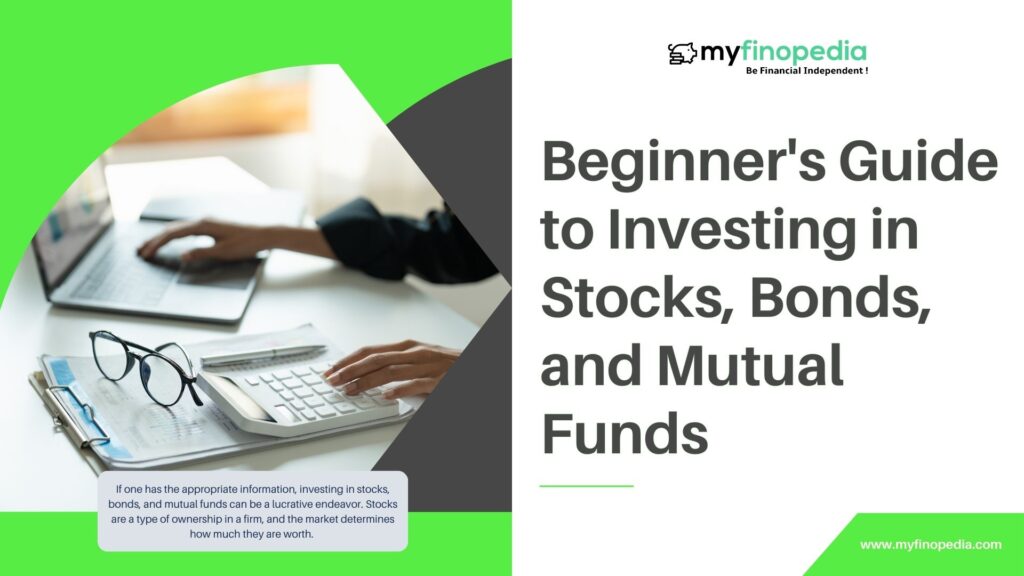If one has the appropriate information, investing in stocks, bonds, and mutual funds can be a lucrative endeavor. Stocks are a type of ownership in a firm, and the market determines how much they are worth. To disperse risk, novice investors should diversify their stock holdings.
Conversely, bonds are debt securities that allow investors to make loans to businesses or governments. When the term comes to an end, the principle is returned together with fixed interest payments. Compared to stocks, bonds are thought to be less risky and offer stability but smaller potential rewards.
Mutual funds invest in a diverse portfolio of stocks, bonds, or both by pooling the money of several participants. Because they are run by experts, they make decision-making easier for novices. Select funds that are in line with your investing objectives and risk tolerance.
- Establish definite financial objectives and evaluate your level of risk tolerance first. Do your homework on businesses and sectors before purchasing stocks. When buying bonds, take the interest rate environment and issuer’s credit rating into account. It is necessary to investigate mutual funds‘ costs, past performance, and fund objectives.
- Open a brokerage account in order to purchase and sell securities. User-friendly interfaces and instructional materials are frequently offered by online platforms. Examine your portfolio frequently to make sure it supports your objectives and make any necessary adjustments.
- Having a solid understanding of news, economic data, and market movements is helpful when making decisions. Since investing is a long-term endeavor, patience is essential. Dollar-cost averaging is a technique that can help you reduce market volatility by making consistent contributions to your portfolio.
- Keep yourself updated on any changes to the financial scene so you can adjust your plan as necessary. Consult a financial advisor and ask experts in the field of finance to customise your investing strategy for your particular circumstances. Recall that although investing entails risks, a disciplined and knowledgeable strategy can eventually result in financial development.






